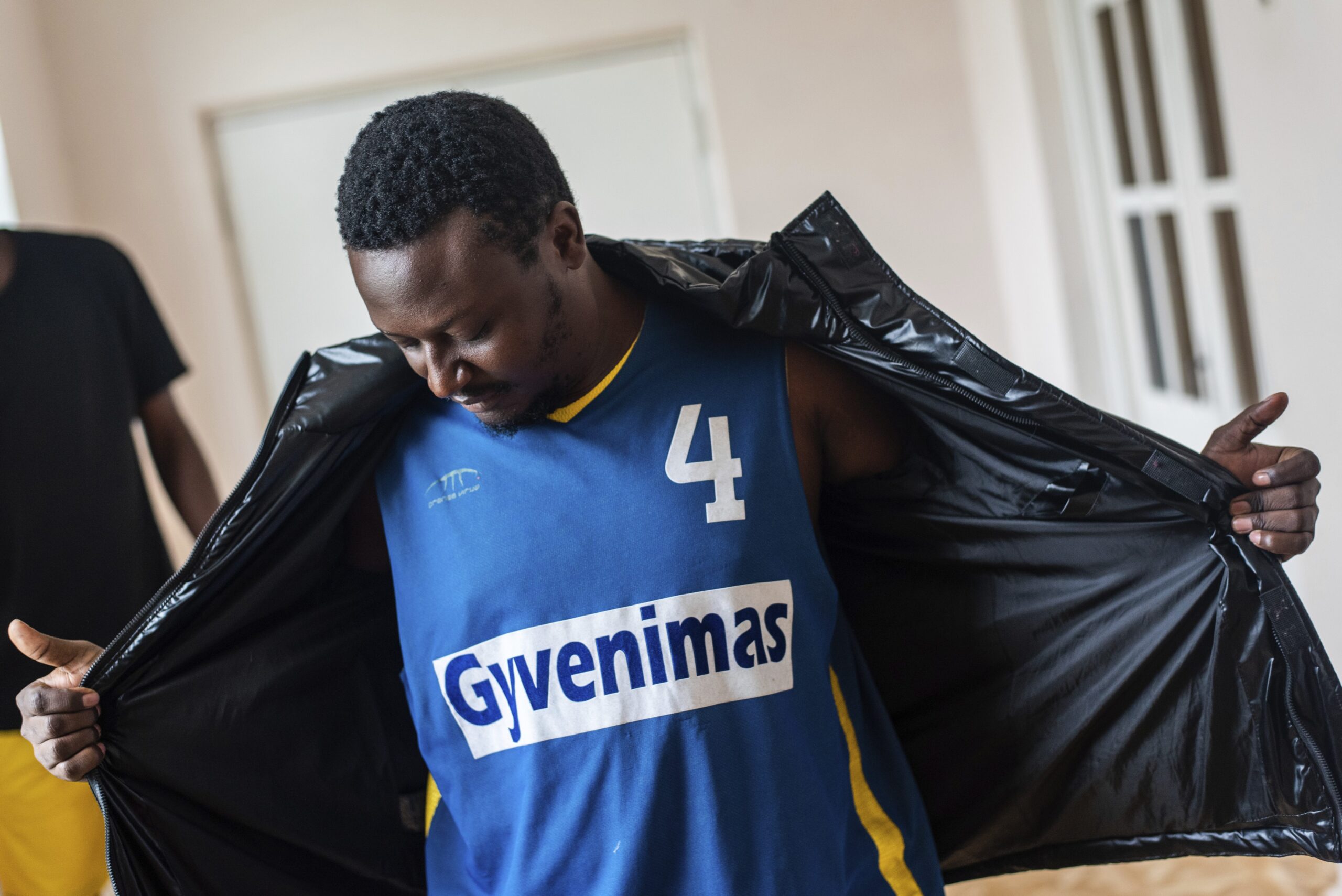In May 2022, The Nordic Council of Ministers kicks off a comprehensive integration project in the Nordic and Baltic countries, supported by UNHCR.

Joel came to Lithuania from Cameroon. In the photo, he is wearing a T-shirt he found amongst the clothes donated to refugees. “Gyvenimas” means “life” in Lithuanian. © Berta Tilmantaite
The Nordic Council of Ministers, and UNHCR, the UN Refugee Agency, have launched the comprehensive FOR-IN integration project together with authorities, universities, and NGOs from across the Nordic-Baltic region.
FOR-IN is short for “Fostering refugee and immigrant integration/For Integration”. The project will run for two years and connect various actors, ranging from ministries and municipalities to NGOs and actors with refugee and migrant background.
The aim is for the Nordic and Baltic countries to learn from each other’s experiences and ultimately, engage local actors and refugees themselves better in the integration processes. During the next two years, the project partners will learn from each other by participating in conferences, events, and study visits across the region. UNHCR is supporting the project financially and will also act as advisor, facilitating dialogue between the different participants in the project, and ensuring the participation of refugees and migrants.
The project sets off on 2-3 May 2022 with a conference in Vilnius, Lithuania, where the project partners will discuss how to assist immigrants and refugees during rapidly increased arrivals. At the conference, the participants will also hear first-hand experiences of immigrants and refugees at the exhibition “When Stories Meet” created by the Lithuanian journalist collective NARA.
With the recent arrival of refugees from war-torn Ukraine and the influx of asylum-seekers via Belarus, the timing of the project could not be more relevant, according to Karolis Žibas, Integration Officer at UNHCR’s Representation for the Nordic and Baltic Countries.
“Learning is a two-way street. It is not just about the Baltics learning from the Nordics. In the response to Ukrainian refugees, I have seen unprecedented efforts to mobilize resources in the Baltics from NGOs and grassroot movements and through donations, which the Nordics could potentially learn from. You have a lot of integration initiatives in Lithuania, Latvia and Estonia, and we also want these three countries to learn from each other and share their experiences,” he says.
Most of all, Karolis Žibas hopes that the project will create a norm of engaging refugees and migrants in the design of integration programs.
“A participatory approach creates the sense of belonging, which in turn creates integration. By engaging refugees in the design and co-creation of the project, we try to create this sense of belonging and think beyond the traditional integration service provision, such as language and culture courses and labor market inclusion,” he explains.
See photos from the kick-off conference in Vilnius below:
Share on Facebook Share on Twitter